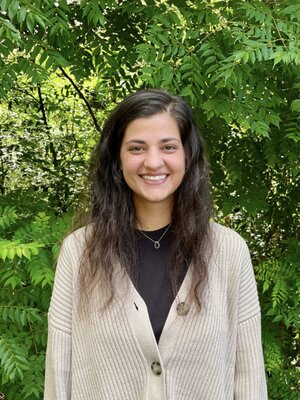
Why African American Studies (AFRO)?
It’s difficult for me to pinpoint the reason I chose to pursue a major with AFRO. I remember taking a course to fill some space and then taking another course because I heard about how excitable the professor was (Dr. McDuffie, who I would go on to work with on research and other related projects). It was when I enrolled in AFRO 100 and met Dr. Bailey and Dr. McMillion that I realized how much more there was to African American Studies than “gaining a better understanding of the nation I live in,” because I saw how applicable the knowledge I gained was to so many more aspects of my own life than I had anticipated. I saw that the field was a way to gain a multidisciplinary understanding of the world while acknowledging the people and experiences that are often removed or forgotten in the larger narrative. I found so much value and worth in the methods AFRO uses to educate its students. I fell in love with learning when I joined AFRO because I knew I was finally learning an honest account of history and being given the knowledge and vocabulary necessary to navigate a diverse and divided world.
How has being an AFRO major or minor benefited you? Are you working in your field?
The education I gained in AFRO went far beyond the lecture halls, essays, and exams. It even goes beyond my career goals and ambitions. Rather, I learned how to navigate a world that can feel overwhelming at times, but that has so much to offer. AFRO provided me with learning opportunities to conduct my own research, to travel to new places in order to understand the lives of others, to find value in self-determination and strength in community. I believe my experiences with AFRO made me into a better person who is exceptionally capable of helping others and taking care of myself. Upon graduation, I decided I wanted to help young people who are often overlooked. This led me to work in behavioral/psychiatric youth facilities, schools, and nonprofits. I currently live in Tampa, Florida where I work for a nonprofit, The SPARK Initiative. In this role, I work with institutionalized and incarcerated individuals by facilitating classes on social and emotional learning that promotes gaining an understanding of the basic principles of how the mind works in order to make better decisions in the future. I truly believe my education with AFRO helped me find success in this role, and the roles I have assumed thus far through the underlying focus of each and every AFRO course: everybody has a story. AFRO taught me to listen, appreciate, value, honor, investigate, to become curious–but not to make rash judgments.
Did you feel AFRO prepared you for the workforce and the real world?
I believe AFRO prepared me for the “real world” far more than many other programs prepare students. This is because every professor teaching AFRO courses was aware of the world outside the confines of scholarship. University departments can become very closed off to the rest of the world when allowed. Research pushes people to focus on smaller and smaller details (with good reason) which can result in departmental tunnel-vision. I never felt that with AFRO–quite the opposite in reality. The department was full of professors who were cross affiliated with other campus departments. This made the office a hotbed for innovation, discussion, creativity, and growth. Nowhere else on campus could spend an afternoon working with historians, entomologists, ethnomusicologists, and social workers all in one place. I was taught how to appreciate the work and ideas of others even when the connection between us may not immediately seem obvious. It made me a better student, citizen, and individual.